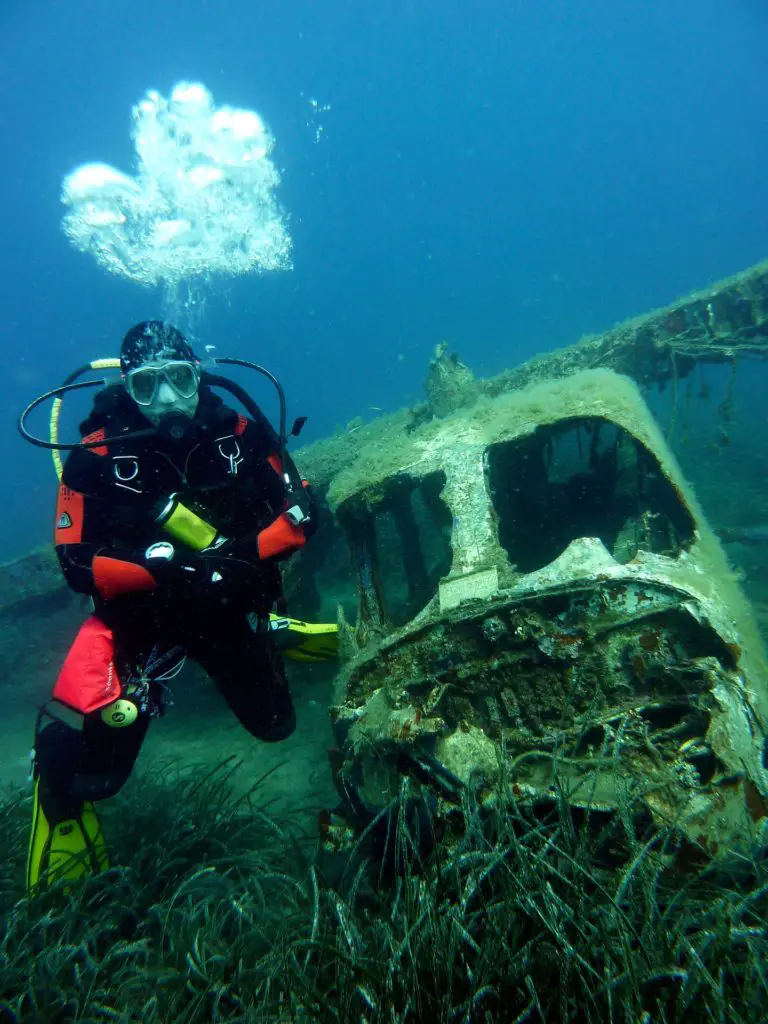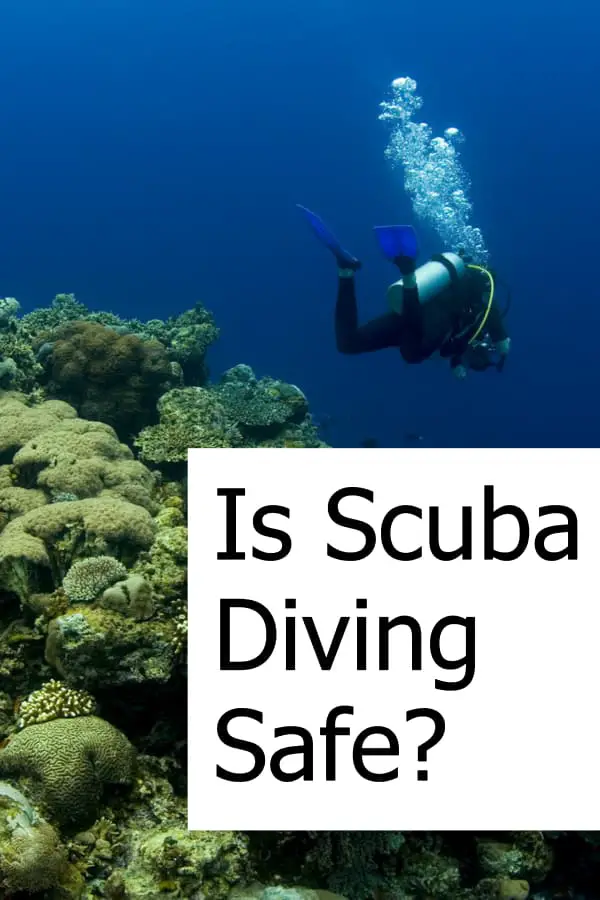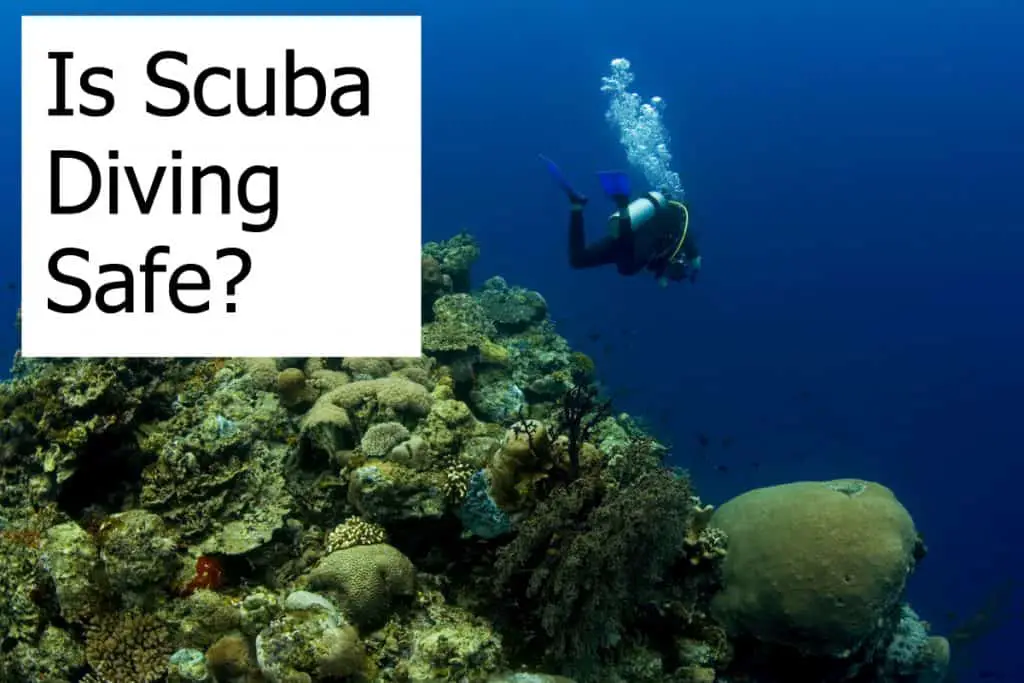Is Scuba Diving Safe?
Many new divers experience some anxiety about going underwater for the first time. After all, it’s an intimidating concept.
You’re submerged in an environment in which you can’t survive without equipment. The changes in pressure, light, temperature, and sound can be disorienting, and it can feel like there’s no easy escape route. Plus, some new divers worry about underwater wildlife like sharks or stingrays.
However, after the first couple of times in the water, many of these fears are replaced with the wonderful experience of scuba diving, from the breathtaking wildlife to the exhilaration of exploration, to the camaraderie that comes from bonding with your diving partner.
Of course, you still want to read up on the safety and risks of scuba diving before you decide to take the plunge, so here is an information guide to assuage some common fears and misconceptions.
First of all, is diving safe?
Diving is a widely popular sport, but there are still some who have reservations about its safety. Let’s put it this way: scuba diving is considered an adventure sport, and with it comes some risk.
But how does that risk stack up to some other physical activities?
According to the DAN Annual Diving Report, about 2 out of every 100,000 people die while scuba diving. And if that number doesn’t put you at ease, it might be helpful to compare it to a few other facts.
Consider, for instance, that the seemingly safe sport of swimming has a fatality rate of 6 out of every 100,000. Or, even more surprising, the fact that 13 out of about every 100,000 runners die each year?
Even when not participating in outdoor sports, the fatality rate for something as commonplace as driving is about 18 out of every 100,000 drivers.

Check out our recommendations on the best entry dive computer!
Let’s put some fears to rest
We don’t mean to say that scuba diving is without risk. After all, it’s an activity done in a very tricky environment. Without proper training and equipment, you can put yourself in a dangerous, potentially fatal, situation.
But the good news is that most of the factors that put divers at risk are completely avoidable. Let’s take a look at some of the common concerns that you may have about your first time underwater:
Interaction with wildlife
Alright, let’s put it out there. To most of us, sharks are scary. But, like many experienced divers will tell you, you really have nothing to worry about.
In fact, more people die each year from dogs and reptiles than sharks, and when you get to see one during your dive, it can be a beautiful, and altogether safe, experience.
Running out of air
It’s easy to understand this concern since it’s not exactly natural to choose an environment where we can’t breathe (Learn about the most efficient breathing pattern for scuba diving). In fact, for many of us, the idea of scuba diving might bring up claustrophobic feelings.
But, of course, this fear is totally unfounded. That tank on your back has been selected for the amount of time you’re going to be in the water.
Plus, you’ll be taught how to check the gauge to make sure you’re doing okay while you’re down there. If, for some reason, you do run low, don’t worry.
You’ll never be diving alone, and you can easily rely on your diving partner to get you back to the surface. Your dive buddy will have an octo regulator for you to use so you can share his or her air supply!
Equipment Failure
The world of diving has changed a lot in the past few years, which means better equipment and less risk. If you’re worried about foggy goggles or breathing apparatus malfunctions, don’t get too caught up.
In your training, you’ll learn how to deal with any issues that come up so that you can either fix the problem at the depth you find yourself or make a safe ascent.
Pressure Issues
Of the concerns we’ve discussed so far, this one is probably the most well-founded. Changes in water pressure can have significant effects on the body that we must be conscientious of underwater.
But again, these risks are easily avoided with proper preparation and training. You’ll learn, for instance, that if you start to experience ear pain, it’s a pretty good sign that the water pressure is putting dangerous stress on your eardrum.
And, of course, your diving instructor will coach you through the most important way to avoid pressure-related problems: proper ascension to the surface. If you use a dive computer then it’s pretty simple as it will let you know when you go too fast!
How can you prepare?
Training, training, training.
This will vary depending on where you live and where you choose to take your instruction courses, but there are a few things that are common in your training.
The first thing you’re going to want to do is to find a qualified and reputable scuba instructor. This person will help you from the beginning stages of finding out if you’re physically able to dive, to all the paperwork that you’ll need to navigate to become certified, to the closed environment training, and finally to the open water training and certification.
In each step of the process, you’ll learn how to use the equipment, how to identify risks and dangers, and how to address problems as they arise in real-time. At the end of your training, you won’t be thinking about whether scuba is dangerous, but rather, when you can get out there and put your certification to use!
So what’s the final verdict?
Yes, we know that even with statistics, it can be difficult to judge how safe the sport actually is. But, as you can see, it all comes down to preparation and procedure.
When you’ve been properly trained, have taken the time to ensure that your equipment is top-notch, and made an effort to find a reliable diving partner, you significantly reduce the chance of getting into a tricky situation underwater.


